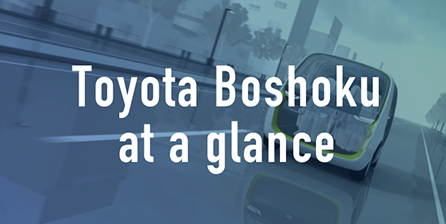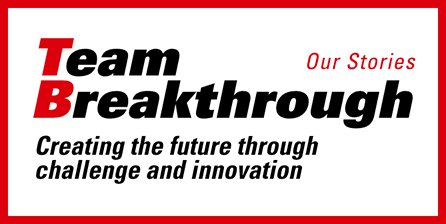Customer First, Quality First
Basic stance
Based on the customer first philosophy originated from the Principles of Toyoda—being unified to make contributions for the world and for people—and our initiatives related to MONOZUKURI cultivated for 100 years, the Toyota Boshoku group aims to become an Interior Space Creator by 2030. To achieve this goal, we are working to thoroughly implement quality first and develop human resources on a global scale. It is our mission to always consider matters from the customer’s perspective and position, to ensure safety and confidence, and to provide customers with attractive and inspiring products and quality.
2025 Quality Roadmap
We collate quality issues and are promoting activities in line with the 2025 Quality Roadmap.
We aim to quickly resolve the issues we face, and to be a "trusted and chosen supplier," as well as a "provider of quality that exceeds customers’ expectations," and a "system supplier that manages the entire interior space."
In order to achieve our target, we have established three policies linked to our materiality to improve the quality of our processes and products.
2025 Quality Roadmap

- An award presented to companies that are implementing TQM and achieving outstanding results
- Total Quality Management
Aim to improve process quality by enhancing capabilities of "people", "organization", and "process", in order to maintain a flexible and resilient corporate structure based on the Corporate Philosophy of "total participation", "customer first", and "continuous kaizen."
Global QA system by introducing CQO system
To provide high quality, high value-added products to our customers around the world, CQO*1 for each region, CQO for each area*2 within these regions, and related functional divisions cooperate to quickly resolve global issues, as well as localized issues that arise in specific regions.
- Chief Quality Officer
- Regional CQOs for each of the 5 global regions, with the area CQOs under each.
For more information, please see the following section on our CQO Promotion Structure.
Items being addressed in the CQO system
- Clarify the responsibilities of the Research & Development Unit and Functional Collaboration Unit, as well as each region. Strengthen cooperation, and promote global quality improvement activities to achieve “Customer First, Quality First.”
- Raise awareness of quality in each region and area, as well as each Research & Development Unit and Functional Collaboration Unit, and foster a culture in which top management itself takes the issue seriously.
CQO Promotion Structure

Strengthening quality competitiveness for the future, utilizing digital technology
We have been improving product quality while digitizing various types of quality information, with the aim of becoming a "trusted and chosen supplier." Currently, we are using this digital data to build a system that aims to prevent issues through expanded traceability and drawing checking systems.
In order to become a "system supplier that manages the entire interior space" by 2025, we are working step by step to create a system that enables continuous quality improvement using DX.
System that enables continuous quality improvement

- All Toyota-Boshoku Quality Information Leading System
Improve process quality through implementation of TQM
In order to achieve sustainable growth, we are using TQM to change the way we have been working, strengthen the "organization," "processes," and "people" of our management foundation, and improve the quality of all processes.
The term "organization" refers to the ability to implement management strategies for sustainable growth; "process" refers to the procedures used to realize business operations from the customer’s perspective; and "people" refers to the qualities and expertise required to carry out business operations and manufacturing.

Improve process quality of all work through the implementation of TQM by all company members
Training, practice, and sharing of results
We have defined the management skills, problem-solving skills, data utilization and quality management skills, and unique technologies and skills required for TQM, and are conducting systematic training.
In particular, to improve problem-solving skills, we are developing human resources who can enhance business processes based on Toyota Boshoku's problem-solving methods by perpetuating the cycle of "knowledge acquisition (training)," "practice and application" through to "sharing of results."

<Main training activities>
- Implementing training on Toyota Boshoku's problem-solving methods (OJT problem-solving training) for non-managerial employees and supervisors (Senior Specialist and above) at three levels: "entry-level," "basic," and "leader."
- Implementing knowledge and practical training (TQM manager training) for the purpose of improving management skills for Department General Managers
- Defining data utilization capabilities by qualification and providing systematic training
- Providing various study opportunities related to AI and big data utilization, and implementing literacy training (AI generalist basic training) for engineering and administrative company members and managers to properly utilize AI in their work

- Statistical Quality Control





